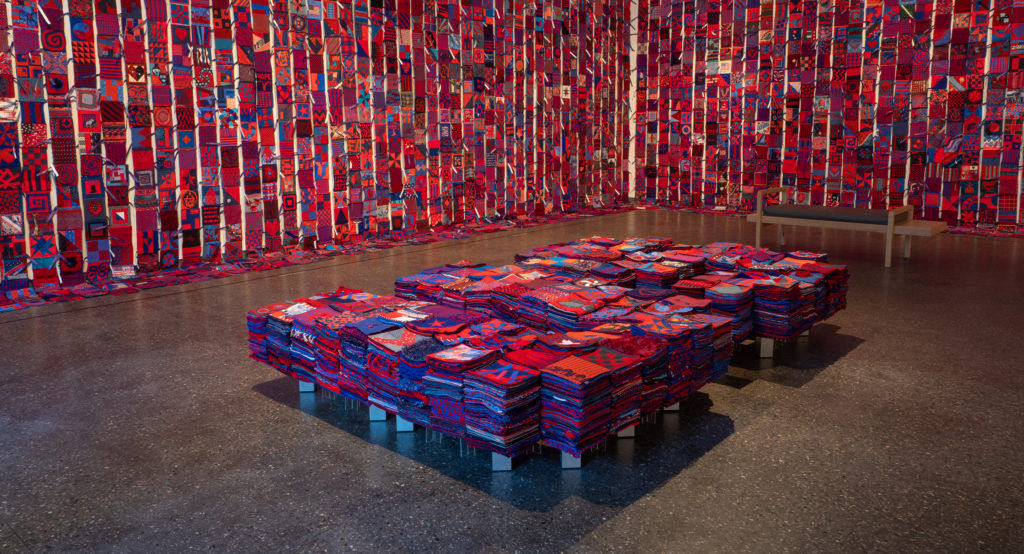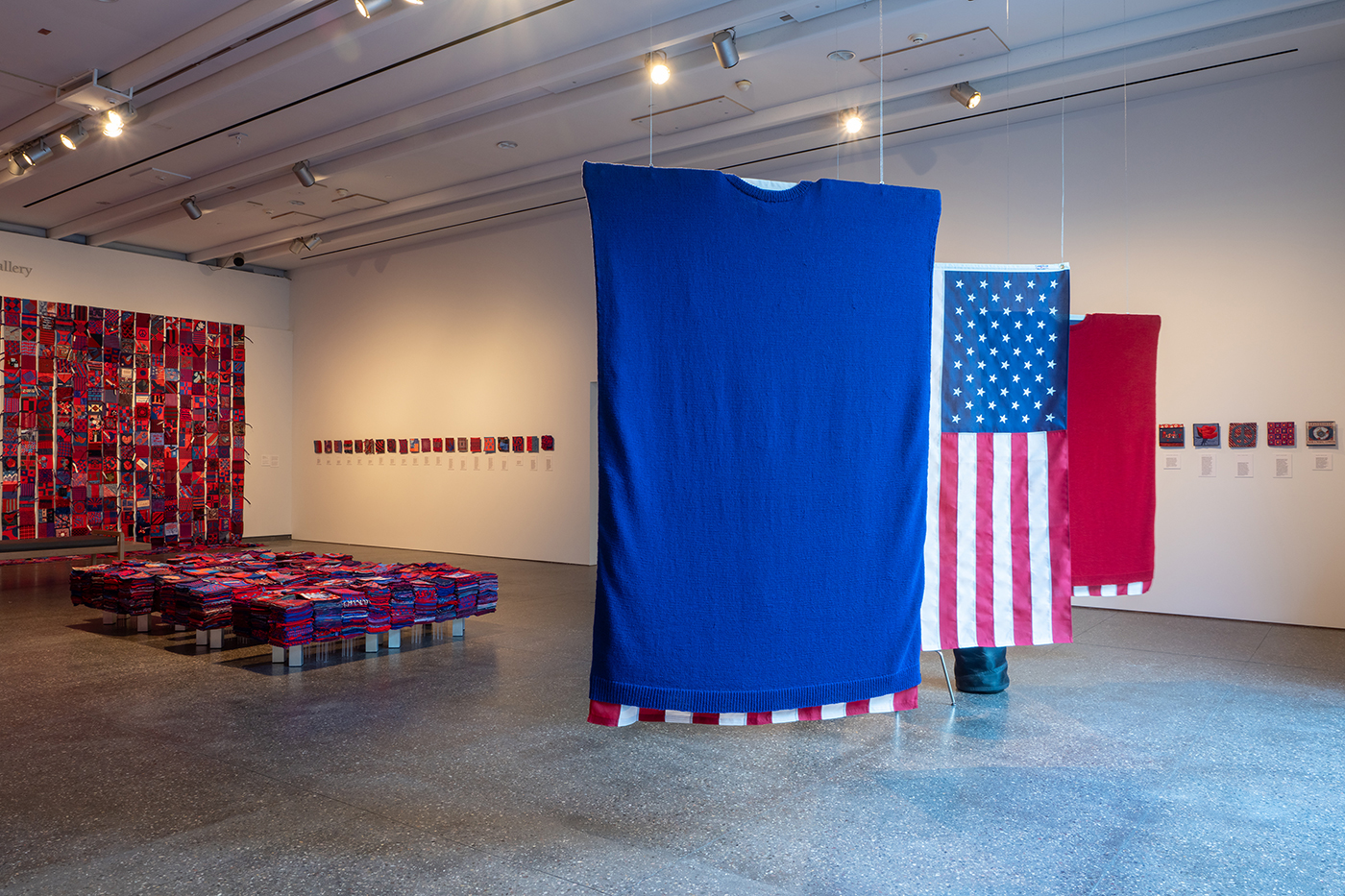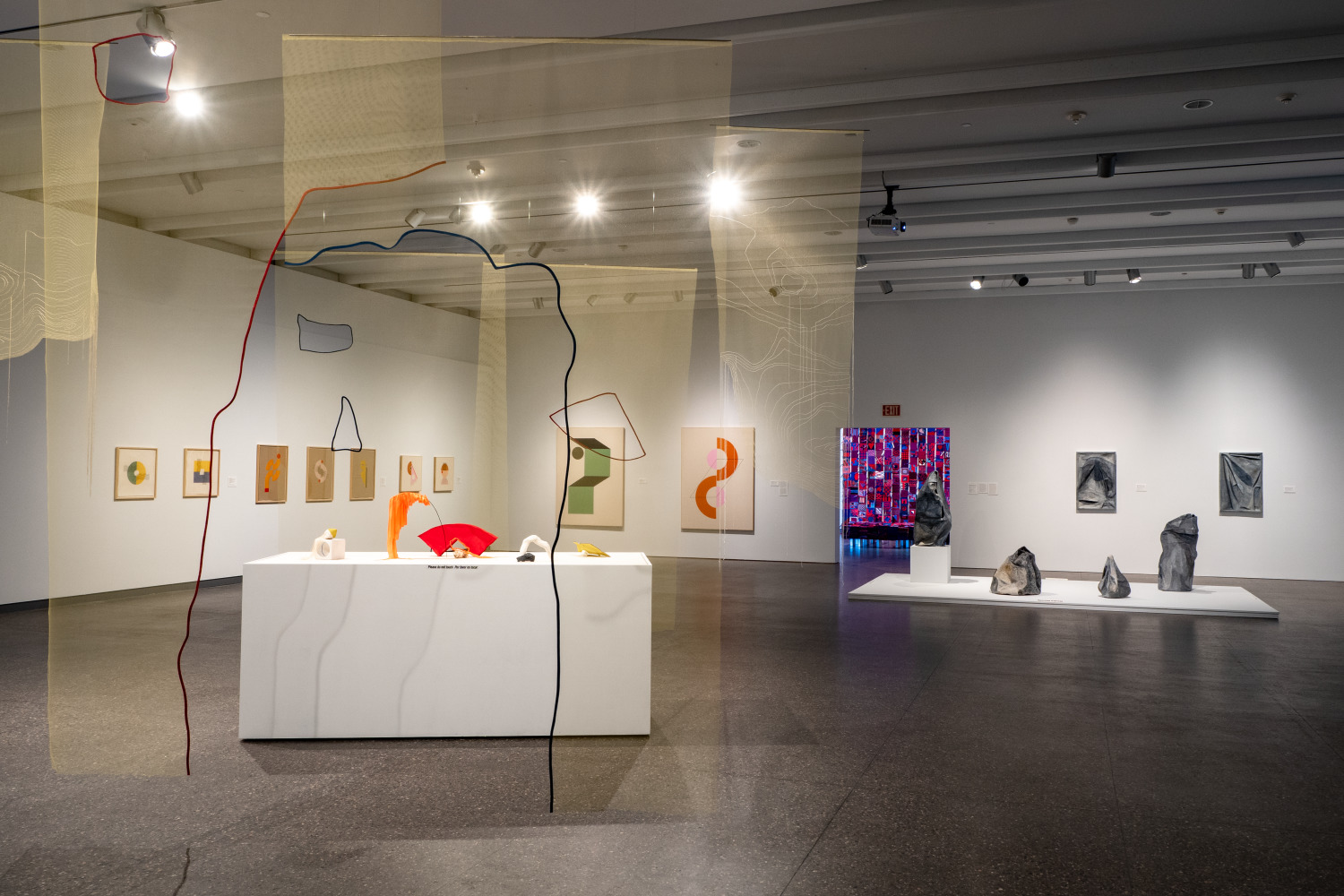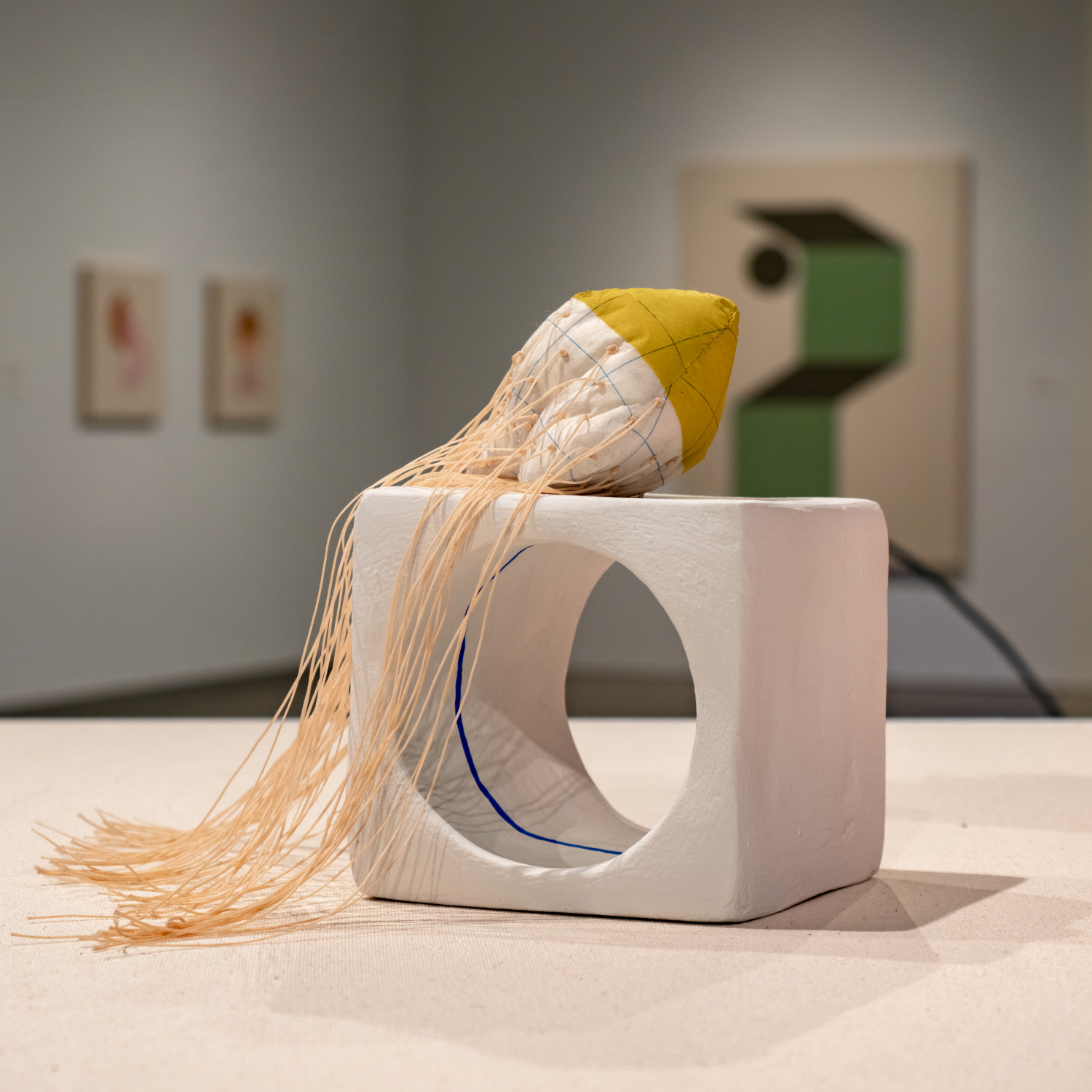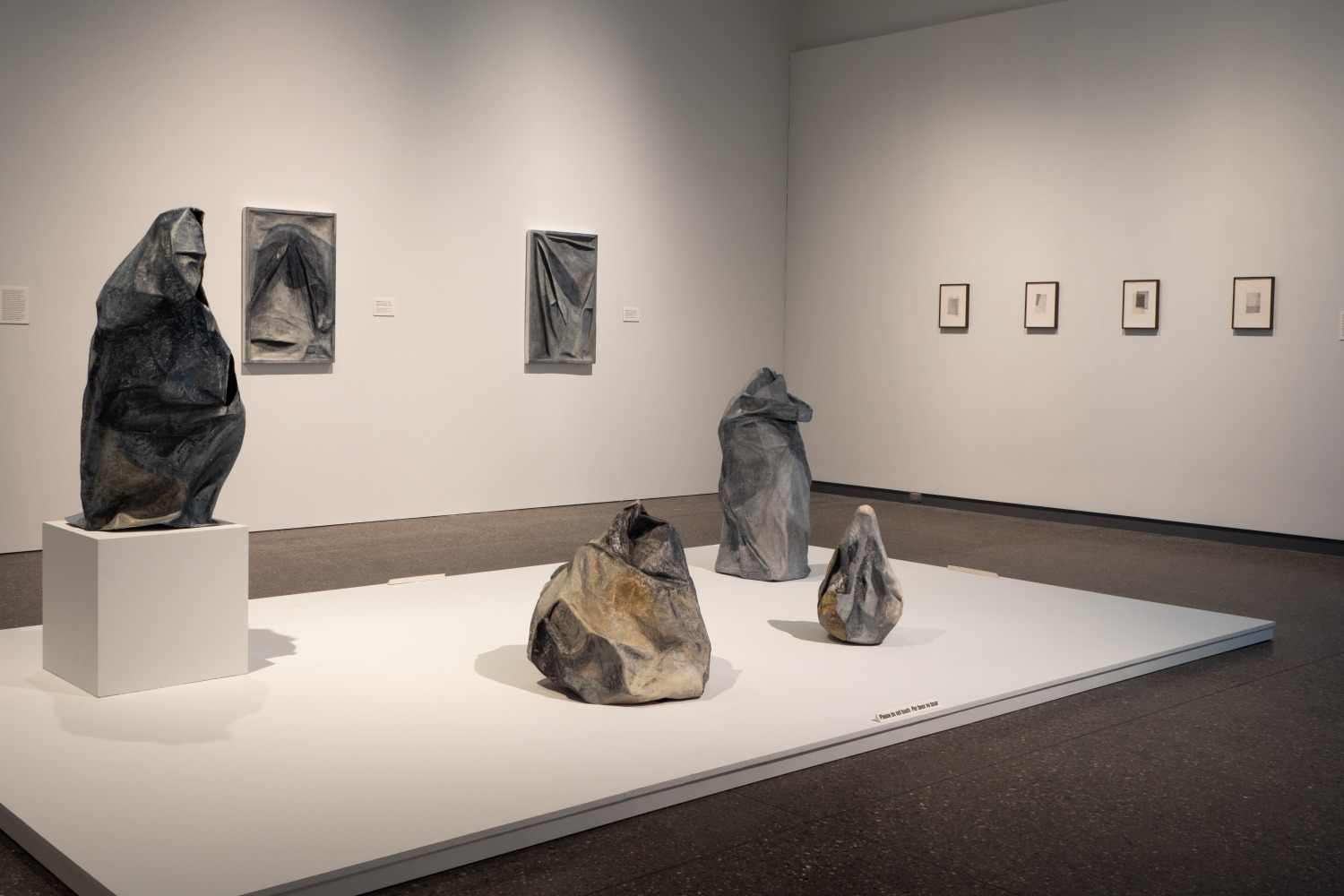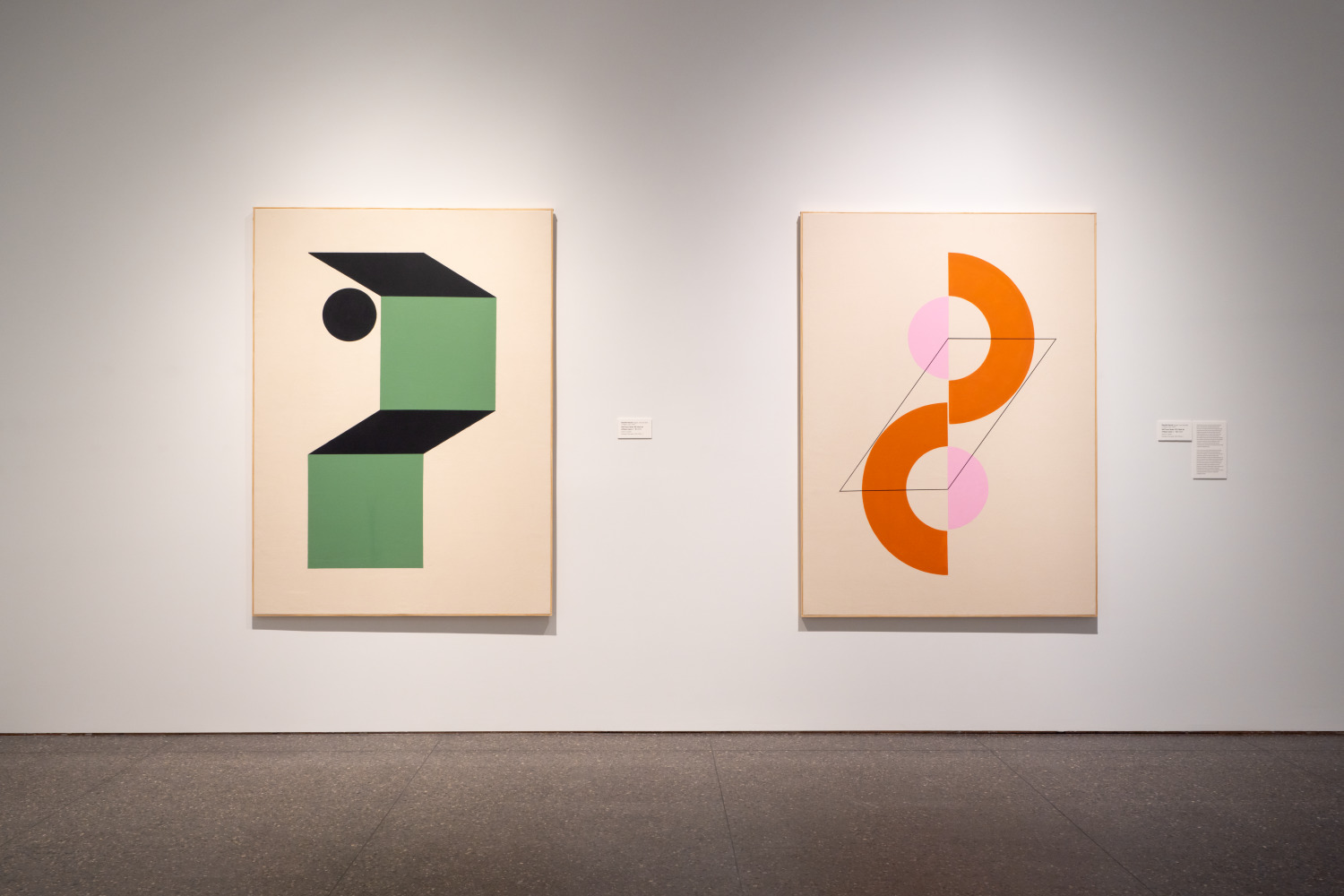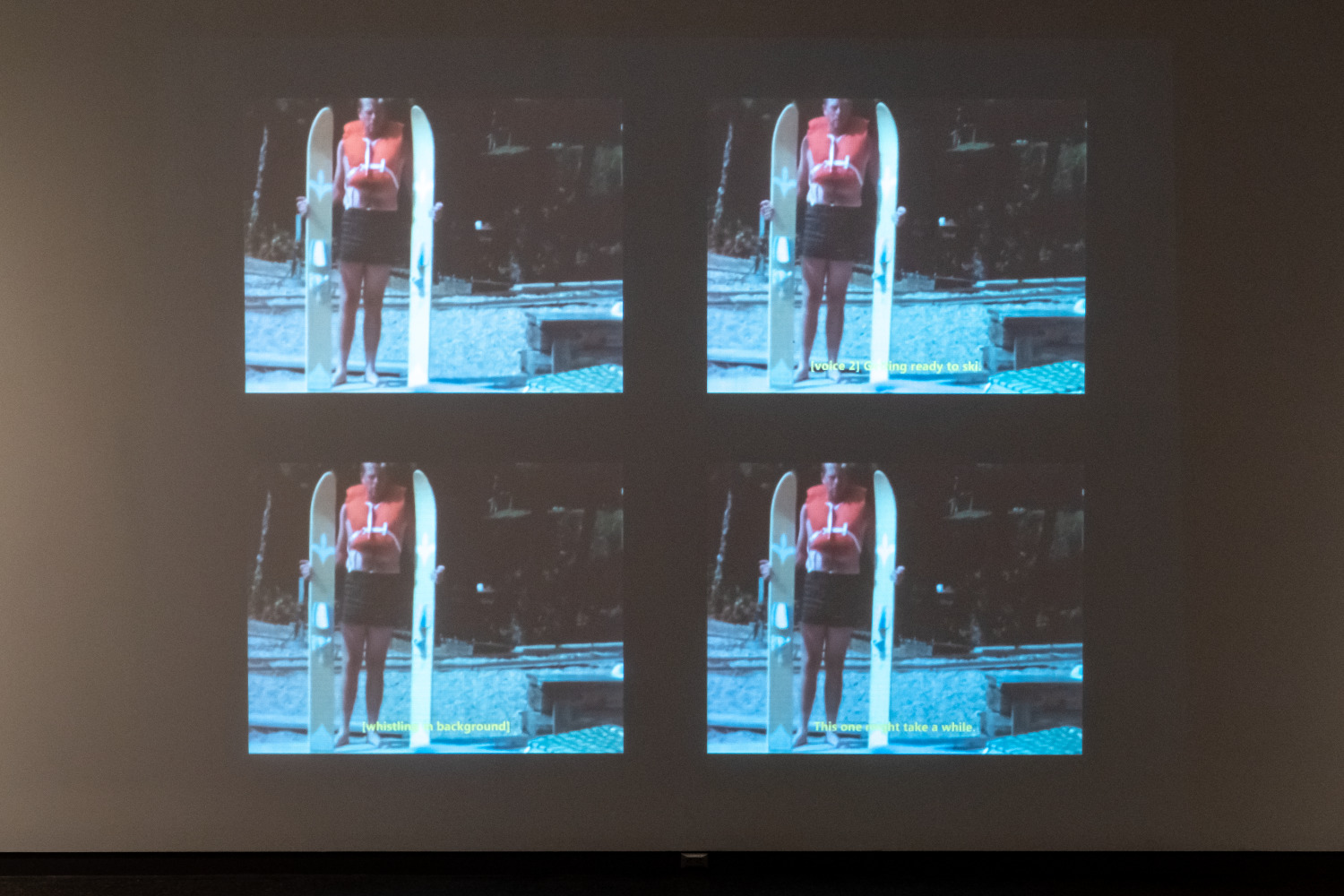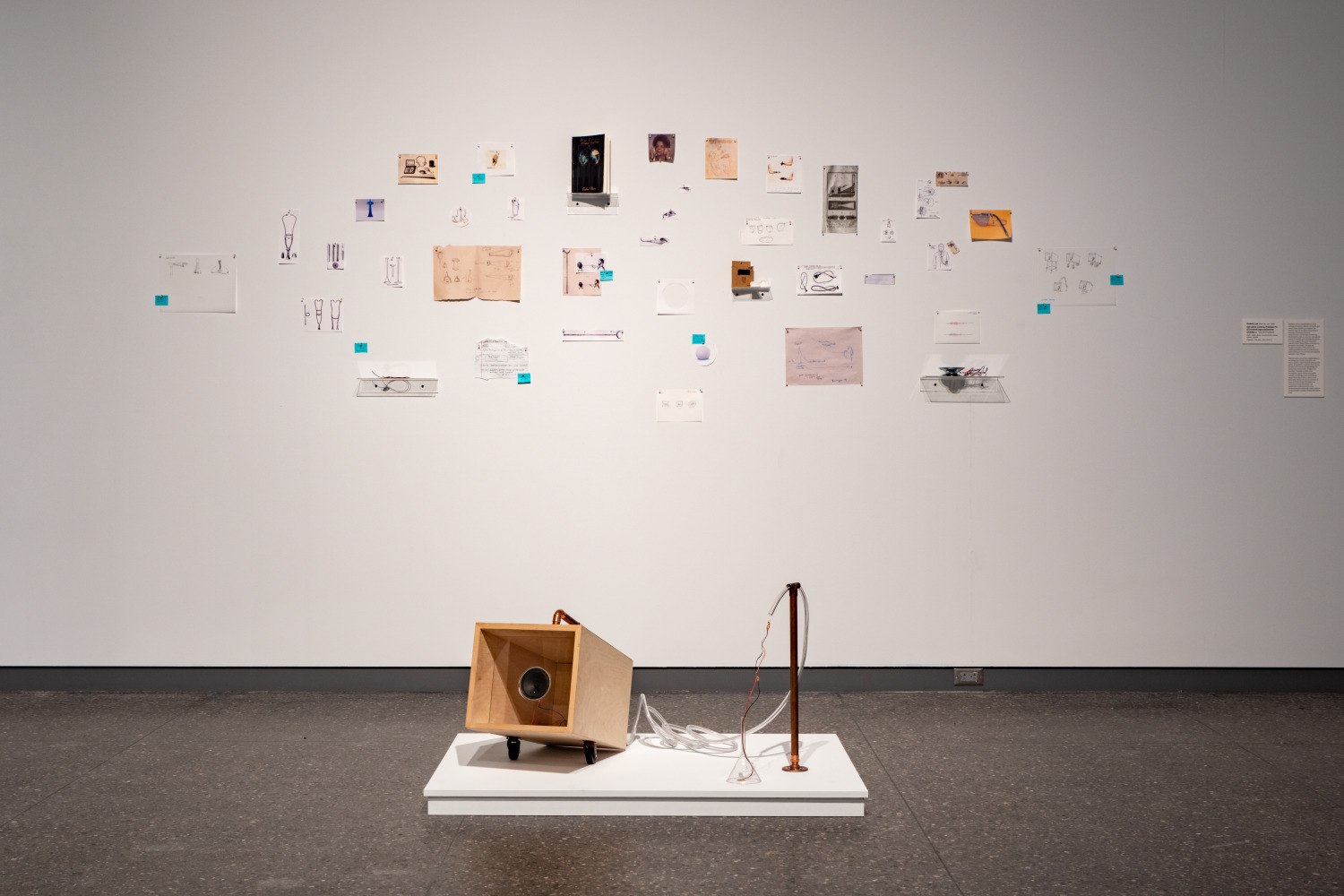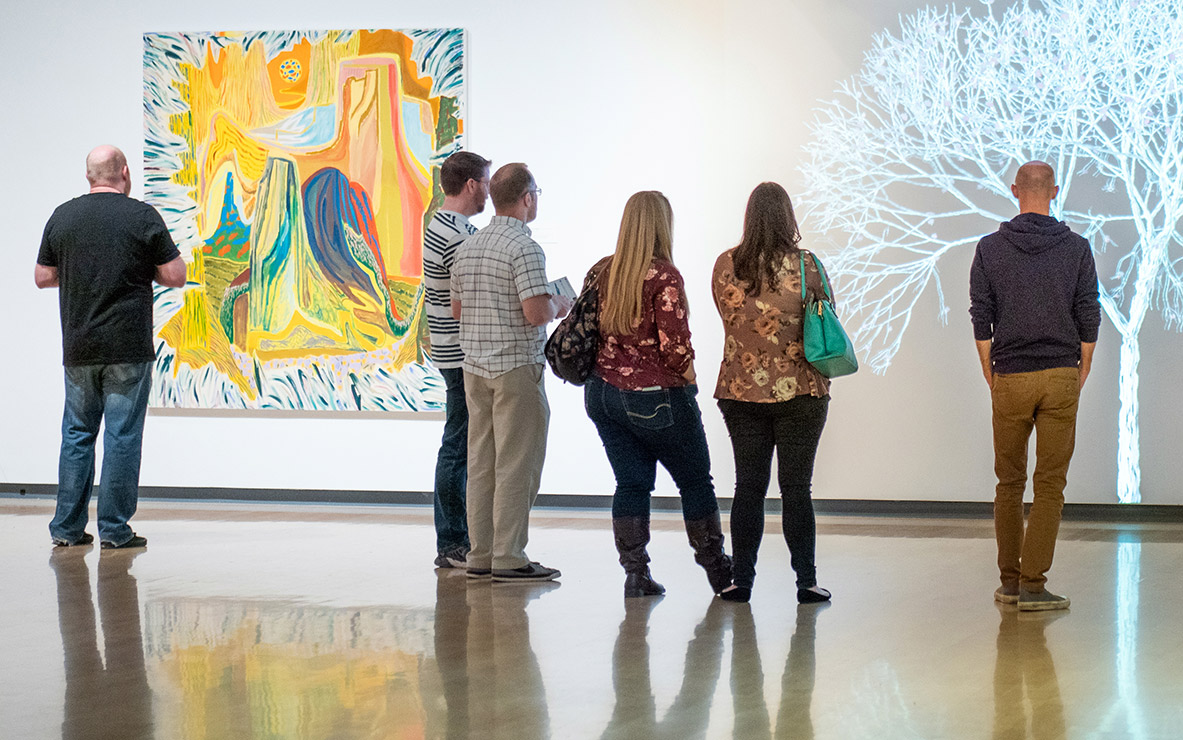Ann Morton: The Violet Protest
Ann Morton: The Violet Protest showcases the latest collaborative art project by Ann Morton, the recipient of the 2019 Arlene and Morton Scult Artist Award whose work exploits traditional fiber techniques as conceptual tools for aesthetic, social communication to examine a society of which we are all a part—as bystanders, participants, victims, and perpetrators. Entitled The Violet Protest, the large-scale installation seeks to unite makers of varying political ideologies and encourage bipartisan collaboration. Similar to the artist’s previous public interventions, including the award-winning Ground Cover (2013), the work reflects both Morton’s handwork and that of other makers.
In January 2020, Morton announced an open call for textile artists and makers across the United States and Puerto Rico, asking them to participate in The Violet Protest by creating 8” x 8” square textile units that use equal parts of red and blue materials, symbolizing the union of opposing U.S. political ideologies. More than 1,500 makers from across North America, including all 50 U.S. states and British Columbia and Alberta in Canada, responded, providing more than 10,000 squares that Morton has used to create stacks shaped like the letters “U” and “S.” In this configuration, the red and blue of the textile units blend to create the overall impression of the color violet, with additional squares displayed along gallery walls to ensure every maker who participated is represented. Morton will continue to accept squares up to August 1, 2021, and these final submissions will be added to letter stacks and gallery walls over the run of the exhibition, providing viewers with the opportunity to see the work grow.
After Morton’s exhibition at Phoenix Art Museum closes on September 5, 2021, the artist will disassemble The Violet Protest and send squares from the installation to all U.S. Senators and Representatives, accompanied by a photo of the full work and a letter calling for elected officials to come together, prioritize the representation of their diverse constituencies, and reject political divisiveness.
